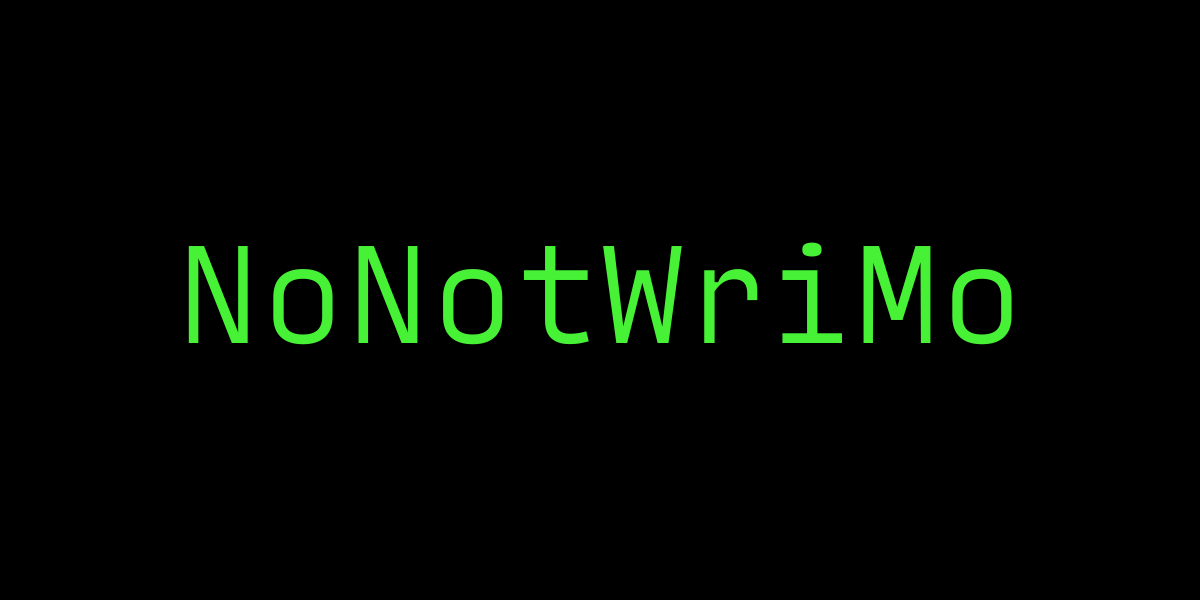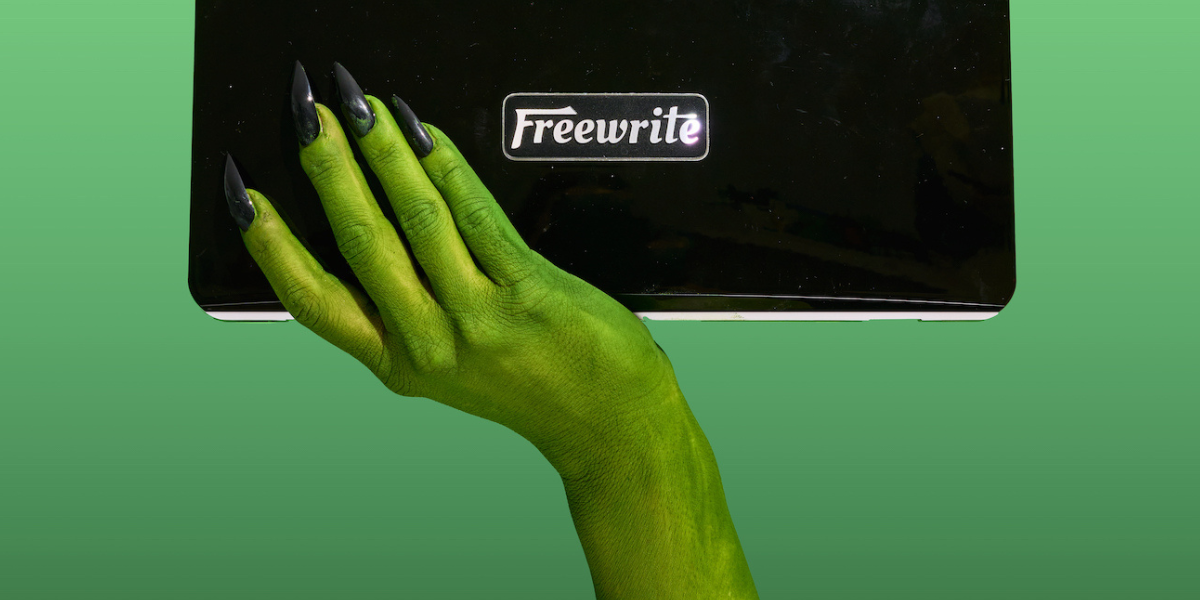Many, if not most, unpublished writers dream of publication. It's what so many of us strive for. For many, it's the reason they write.
But what do you lose when you only write with the goal of publication? What happens when you aren't looking to publish?
Well, lifelong writer Patrick McCafferty says, what happens is freedom.

As I spoke with him, he let something slip that hit me right in the soul:
It wasn't said with regret. In fact, Patrick sounded confident and comfortable with his writing life. Even enamored with it.
As a writer who has pretty much always pursued publication, it made me pause and wonder: What was I missing out on by not writing things just for me?
Read on to learn what Patrick had to say about his lifelong love affair with writing and sharing with others.
I'm 70 now and I’m not so compelled to be published, so mostly I write for my own pleasure. I don’t want writing to turn into something that stresses me.
ANNIE COSBY: Let's start at the beginning. When did you first start writing?
PATRICK MCCAFFERTY: My earliest inspiration as a writer was a writing project my brother was working on in grade school. (He’s 3 years older than me.)
It was a fantasy story about a group of his friends traveling to a different planet and having adventures.
All these years later, I remember the visuals in my head like it was yesterday.
AC: That's the mark of a good story!
PM: Yes. Then, in my early twenties, I started writing short stories. I have written nearly every day since then, except for a few stretches when I have been distracted with something else.
Over the years, I’ve been inconsistent as to what application I use to write, so I don't always keep track of streaks. My Postbox Profile has helped with that.
Mostly, the writing I do now is journaling; I need to manifest the thoughts in my head in physical form to see them and process them.
I wrote a novel during NaNoWriMo a few years ago, and I really enjoyed that. I also love writing very short pieces that come into my head, based on characters or situations. When I write fiction, I’m writing “for” someone — mostly that’s my brother.
But journal writing can be about anything. It unleashes my creativity and can take any form. This is very freeing.
It also allows me to discover some of my own wants and needs. And sometimes the difference between the two.
Journaling can also help with the dreaded writer’s block. If I'm stuck, I can usually go over to my journal and write something — anything — to help me jump out of a thinking rut.

AC: There’s definitely a certain power in writing only for yourself. What do you think people stand to gain when they stop being so fixated on publication?
PM: I think that not caring whether a piece gets published frees me to write what I want instead of what I think someone else wants. It certainly eliminates the pressure of writing “great stuff” that will sell.
I believe there are many people out there who are looking at what is selling and then trying to write something that will latch on to the latest trend. I have nothing against people who make a living doing that, it’s just not my thing.
But one of the things that we lose in writing only for ourselves is that it’s easy to forget that the main purpose of writing is to communicate with others.
It’s important for me to keep writing as if my words are for someone else to read. Reading a lot can help us know what people like and understand.
AC: We always think of publication, but there are other, very fulfilling ways to share our work, too. You mentioned writing for your brother. Do you share your work in other ways?
PM: When I was younger, a group of friends used to get together and pick a topic and start writing ultra short stories and then we would read them.
It was a little like standing naked in front of these people, but they were all safe and we were kind to each other.
I learned that everyone has their brilliant moments, and everyone has their boring moments, but you just keep writing, letting the creativity flow through you.

AC: That's such a good way to put it. Letting someone read your work does feel that way. How do you decide what to write about?
PM: I like to take a topic and spend 40 minutes writing whatever the topic inspires. I love the process of letting my creativity flow.
Book titles are an excellent source of topics. I like to collect titles in the fiction section in a bookstore or library. I know I could go online and get a million different titles all at once, but I like to spontaneously find a title and let it speak to me. It’s better that I don’t know anything about the book. I collect titles I’ve found and when I’m looking for a topic I choose one at random.
I personally have a spreadsheet with titles that I’ve liked. Paintings, drawings, and other artwork are great sources of inspiration for writing, as well as the titles of the paintings themselves.
If I don’t quite get a story bubbling up inside me when I’ve chosen a topic, I can add a character. I use family, friends, and acquaintances whose personalities I know for that. Using their name while I write helps me keep their personality in mind and how they would react in a particular situation. Of course, I change the name if I ever let anyone read it!
Maybe I'm addicted to that flow of writing that allows me to just dip into characters' lives in my imagination.
Maybe I'm addicted to that flow of writing that allows me to just dip into characters' lives in my imagination.
AC: You often use our app, Sprinter, to write, correct?
PM: Yes, I enjoy using Sprinter because it forces me to get out the words as best I can, and then I can edit them later. (Except with journal writing, I don't edit them later.)
I usually write directly in my journal with a header with the topic name, and then another header to indicate the end, so that in my editor, which is sometimes Google Docs, Dabble Writer, or Drafts, I can easily find those topics. I can pluck them out, put them in their own project, and work on them further.
But I'm looking forward to receiving my first Freewrite device soon. I used an AlphaSmart device in the past, but have found them to be unreliable. Thanks to the giveaway, I've ordered Smart Typewriter and Alpha.

AC: Do you think that people need to write things that will never see the light of day?
PM: I think I need to write my thoughts. It might be too painful or embarrassing to admit something to another person, but writing about it can be very cathartic.
We, as humans, need to express ourselves creatively, whether that’s through various types of art, or through our work, whatever that is. For a lot of people it’s telling stories.
There are an infinite number of stories to tell, just as there are an infinite number of ways to teach other people how to do things, and ways to make music. It brings us joy.
I think we need that.
AC: I think so, too. Thanks for chatting with us about your writing life, Patrick. I hope people find inspiration and motivation in your words like I have.
Check out Patrick's writing stats on Postbox.
























